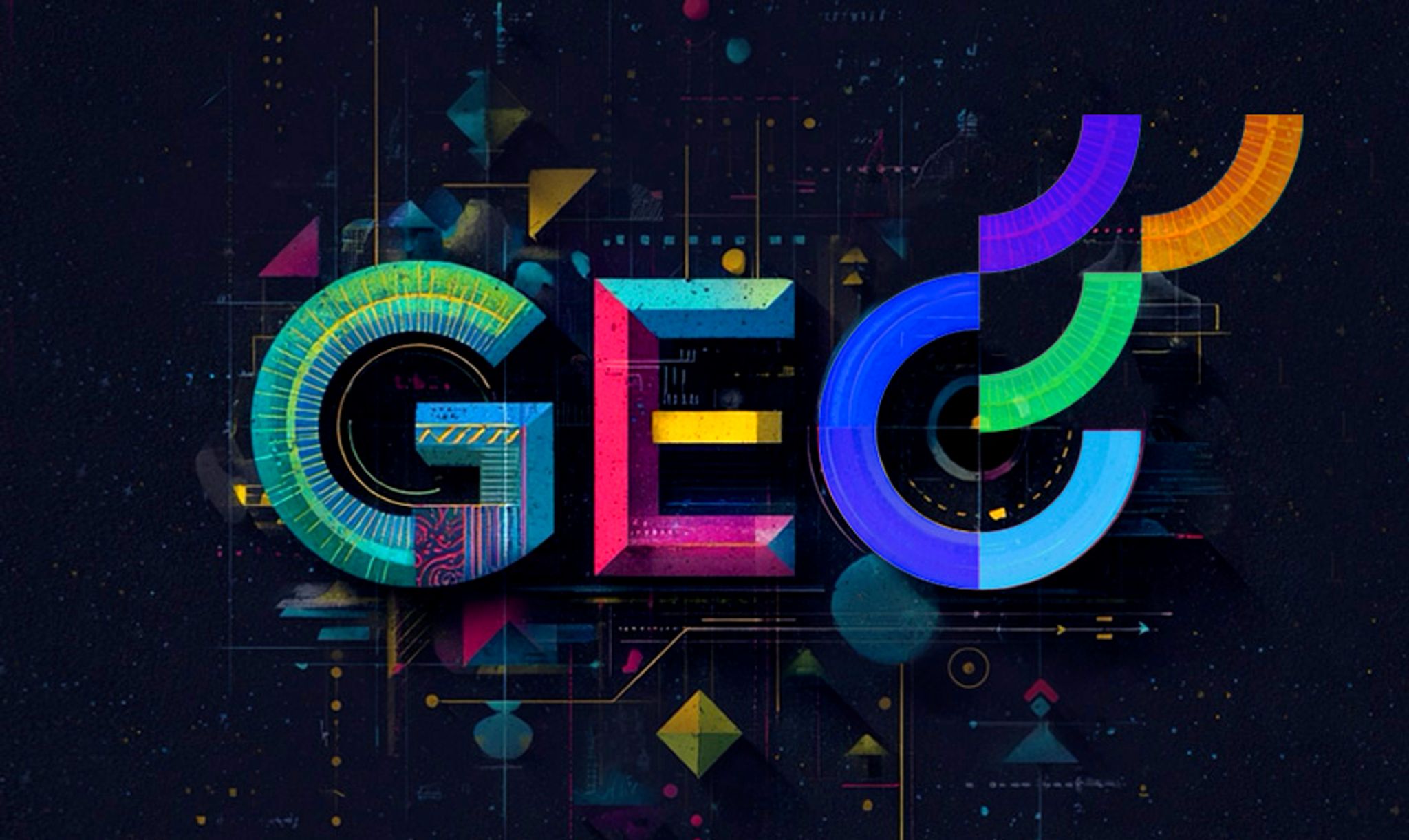Welcome to the ‘GEO-Ready’ CMS: Optimizely adds new features to enhance AI-powered search

As brands struggle to be seen in the AI era of search and discovery, the DXP is helping marketers tackle the challenges of AEO and GEO with a built-in suite of CMS capabilities.
Traditional internet search, by many accounts, is circling the drain.
Blame AI, they say.
I can’t argue that SEO is getting pummeled. But not all metrics (depending on your vector) are bellicose.
In fact, Google’s own figures – which are surely unbiased – indicate that search as we knew it is adapting and evolving, and the net impact of its own AI Overviews has resulted in a higher volume of queries.
The tech giant also reported a 14% increase in its year-over-year revenue from search. For investors, that might soften some of the blow from its recent antitrust fallout – a kerfuffle that should have us all questioning Google’s transparency and trustworthiness (stay tuned for an upcoming podcast on that subject).
I wouldn't count Google out, but let’s face facts: Generative AI engines are stealing the search thunder, and they continue to eat a precipitous share of the Big G’s lunch. According to Gartner, traditional search engine volume will drop 25% by next year, which is faster than previous prognostications.
By the numbers, Google Search is still 373 times bigger than ChatGPT. But that margin is getting smaller and smaller. For marketers, this is creating a blind spot in the SERP soup, and SEO technologies are hustling to provide the needed visibility to address these gaps.
I first wrote about products like Otterly.ai at the beginning of this year, which offered a new breed of tool for the emerging field of Generative and Answer Engine Optimization (GEO and AEO, respectively, because we need more acronyms). Most recently, I spoke to Conductor about its platform's evolution for brand discoverability across AI answer engines.
The tools are getting better at this AI visibility stuff because they have to. As a larger share of search activity shifts to bots, marketers are adapting to the impact of zero-click searches. The big challenge now is ensuring your brand is discoverable and not invisible.
So how do you enable your website – and its content – to be found by answer engines?
Optimizely might just have the solution, and one that’s baked into its core CMS. The market-leading DXP just introduced some innovative features designed to help increase discovery in the AI era, positioning its powerhouse content management system as a “GEO-Ready” CMS.
With these enhancements, users can effectively transform their websites from content warehouses into visibility engines built for AI discovery – and do it all in one place.
Optimizely has been rolling out new AI capabilities across its product ecosystem for some time, and with pretty solid results. I just connected with CEO Alex Atzberger for a first-hand demo of Optimizely’s new Opal AI features, where he showed me how the product is empowering his internal teams and his own day-to-day work.
“We’re transforming how marketing works,” he said during our chat. “That's the big part. That's what really matters." And now, they're expanding on that mission by addressing a compelling need for AEO and GEO features at the CMS level.
From invisibility to AI visibility
With all the motion towards generative engine search, websites owners must adapt their traditional SEO practices and embrace new strategies that serve AI bots and engines. This means structuring content so it can be surfaced, summarized, and selected by AI agents.
“Your website isn’t broken – it’s just invisible,” said Shafqat Islam, President of Optimizely. “The entire business model of the web is being upended, and how marketers generate demand or sell products is being transformed. Marketers need to make sure their websites serve two audiences: humans who demand speed and clarity, and machines that extract and summarize the content."
According to Optimizely, a website’s content must be trustworthy, machine-readable, and strategically structured to compete in this new model of answer engine mechanics. Optimizely’s CMS – combined with Opal – makes the journey from invisibility to AI visibility easier by providing the onboard tooling to make your content discoverable.
“If your CMS isn’t structured for AI discoverability, your content won’t be found,” Islam continued. “With the combination of our new CMS features and power of Optimizely Opal, we help brands move faster, create content smarter, and scale for a world where machines, not just people, are consuming your content.”
Being “GEO-Ready” from optimization to analytics
So how do these new GEO-centric features work?
In a nutshell, the suite of functionality allows Optimizely’s CMS to become a sort of “visibility engine,” providing enhanced capabilities across three core areas: page optimization, site-wide optimization, and GEO analytics.
Some of these structural concepts will feel very familiar to SEO experts, with a few critical differences that tap into AI agent mechanics. Here’s a breakdown of each component area:
Page Optimization
As previously mentioned, showing up in AI summaries requires content to be well-structured, trustworthy, and machine-readable. To get there, Optimizely delivers enhanced page optimization with Q&A field generation, which auto-generates question and answer pairs based on page content.
It also provides GEO-specific metadata that populates titles, descriptions, and EEAT (Experience, Expertise, Authoritativeness, and Trustworthiness) elements for generative engines, as well as markdown summary generation, which injects page-level summaries for improved AI scanning and indexing.
Site Optimization
At the global level, AI agents don’t browse. They scan. And having a top-down site structure ensures your content gets indexed, summarized, and surfaced. Optimizely simplifies this site-wide optimization with llms.txt auto-generation, which automatically signals which pages should be indexed by LLMs and bots.
Optimizely also leverages GEO topic templates to generate topic-specific pages designed to rank in AI-generated summaries and bulk metadata population to add GEO metadata in bulk, including to existing content.
GEO Analytics
Site performance tracking is a whole new ball game in the age of AI. Much of it has been obscured for brands and marketers, and that “black box” has been difficult to break through. When agents read content, they often do it without triggering a click, but Optimizely is bringing visibility to this hidden layer with a GEO health index that scores pages against AEO and GEO best practices.
There’s also a crawl-to-refer ratio that helps measure how often AI bots crawl a brand’s site versus refer to your site, and a crawl rate by model score that indicates which LLMs are hitting a brand’s site most frequently. Taken together, marketers now have better intelligence around their site performance relative to bot activity.
The verdict
Optimizely’s new “GEO-Ready” features attempt to backfill the gaping hole left by AI search. By adding these features natively to its CMS, they're overcoming one of the historically persistent challenges with SEO management: a lack of prioritization.
It's true. Content operations and marketing teams have long struggled with institutionalizing strong SEO practices (hence why we still have cottage agency SEO services). Leveraging automated tools within content management systems has helped improve outcomes, but Optimizely is proactively addressing this for AEO and GEO – and that’s a potentially huge benefit.
In this rapidly evolving era of AI and zero-click searches, marketers need to be more intentional about their content strategies. That includes the foundational approach to AI structure. Having a CMS that helps you establish a stronger position – and to be “GEO-Ready” – could help simplify and accelerate success.
This is definitely a feature set worthy of a demo. And while I expect other CMS platforms to adopt similar tools and strategies, Optimizely continues to reinforce its position as a leader with an integrated ecosystem that will benefit from these innovative steps.
Looking for guidance on Optimizely? Talk to an expert.
Upcoming Events

CMS Connect 25
August 5-6, 2025 – Montreal, Canada
See Agility CMS at the second annual summer edition of our signature global conference dedicated to the content management community! CMS Connect will be held again in beautiful Montreal, Canada, and feature a unique blend of masterclasses, insightful talks, interactive discussions, impactful learning sessions, and authentic networking opportunities. Join vendors, agencies, and customers from across our industry as we engage and collaborate around the future of content management – and hear from the top thought leaders at the only vendor-neutral, in-person conference exclusively focused on CMS. Space is limited for this event, so book your seats today.
